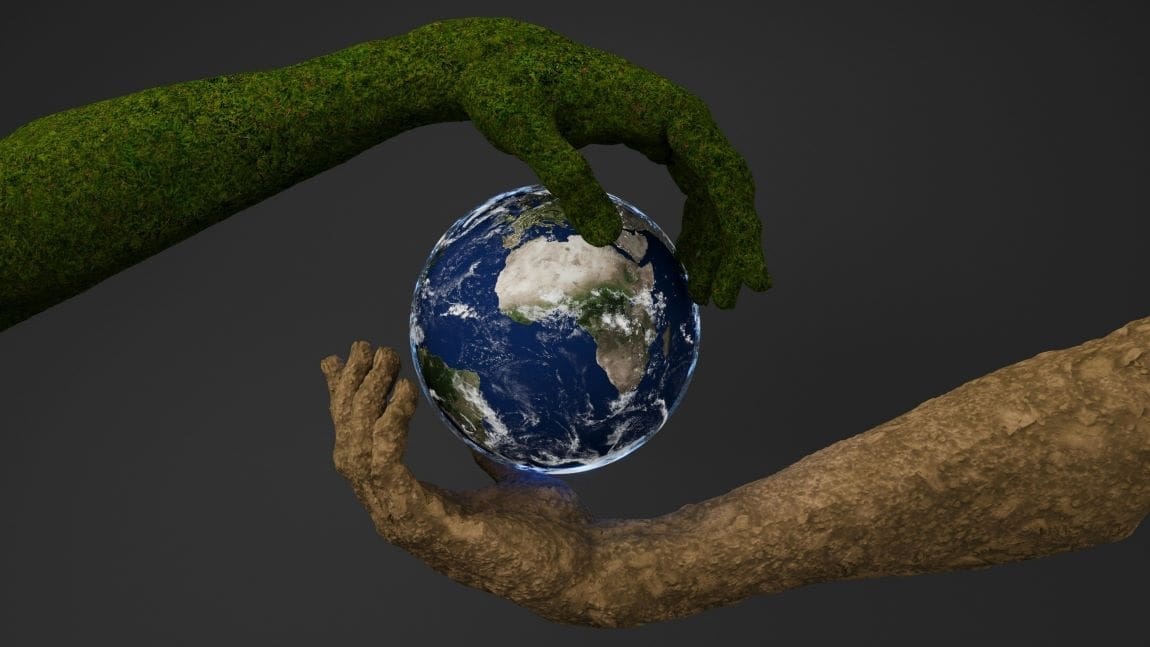Earth will only remain able to provide even a basic standard of living for everyone in the future if economic systems and technologies are dramatically transformed and critical resources are more fairly used, managed and shared, according to an international research team including scientists from The Australian National University (ANU).
The report, published in The Lancet Planetary Health, outlines how cities and businesses have the power to play a crucial role and become the “stewards” of critical Earth systems by demonstrating how they can reduce their environmental impact on the planet.
The report summarises key findings of phase one of Earth Commission, founded in 2019 with a team of 18 globally esteemed interdisciplinary scholars as commissioners, involving more than 40 researchers in various working groups.
The report builds on the ‘Safe and Just Earth System Boundaries’ report published in Nature last year, which found that most of the vital limits within which people and the planet can thrive have been surpassed.
One of three lead authors, Distinguished Professor Xuemei Bai, from ANU, who led the working group on Translation, said that companies and cities have the means to act and drastically transform and reduce pressure on the planet.
“Companies and cities have a huge potential to make a difference, especially if they work towards the same goal, which is to ensure the planet can provide for everyone long-term,” she said.
“They are more nimble and flexible than states, and can reduce their pressure on the planet by setting science-based targets in line with our findings.”
Professor Stuart Bunn, from Griffith University, co-led one of the working groups, which focused on the boundaries of freshwater and nutrient pollution.
The report found the planet’s ability to provide and protect is being stretched past its limits, although it remains possible for humans to escape poverty and harm caused by Earth’s system change, if urgent action is taken.
It found the only way to provide for everyone and ensure societies, businesses and economies thrive without destabilising the planet is to reduce inequalities in how critical Earth system resources, such as freshwater and nutrients, are accessed and used, and how responsibilities, such as reducing carbon emission, are shared, alongside economic and technological transformation.
By 2050, unless urgent transformations are made, the researchers argue that Earth’s climate will deteriorate to the point where there will be no “safe and just space” left.
That means that even if everyone on the planet only had access to the resources necessary for a basic standard of living in 2050, the Earth would still be outside the climate boundary.
The researchers say earth systems face the risk of crossing dangerous tipping points, which would cause further significant harm to people around the world unless energy, food and urban systems are urgently transformed.
The paper outlines a series of recommendations to ensure Earth’s climate remains within this so-called “safe and just space”.
- Firstly, a well-coordinated, intentional effort between policymakers, businesses, civil society and communities can push for changes in how we run the economy and find new policies and funding mechanisms that can address inequality whilst reducing pressure on nature and climate.
- Secondly, fundamental to the transformation is more efficient and effective management, sharing and usage of resources at every level of society, including addressing the excess consumption of some communities, which limits access to basic resources for those who need them the most.
- Thirdly, investment in sustainable and affordable technologies is essential to help us use fewer resources and to reopen the safe and just space for all, particularly where there is little or no space left.
The report is co-authored by more than 60 leading natural and social scientists from across the globe.
Journal Reference:
Prof Joyeeta Gupta, PhD, Prof Xuemei Bai, PhD, Prof Diana M Liverman, PhD, Prof Johan Rockström, PhD, Prof Dahe Qin, PhD, Ben Stewart-Koster, PhD et al. ‘A just world on a safe planet: a Lancet Planetary Health–Earth Commission report on Earth-system boundaries, translations, and transformations’, The Lancet Planetary Health (2024). DOI: 10.1016/S2542-5196(24)00042-1
Article Source:
Press Release/Material by Australian National University
Featured image credit: Bhautik Patel | Unsplash




